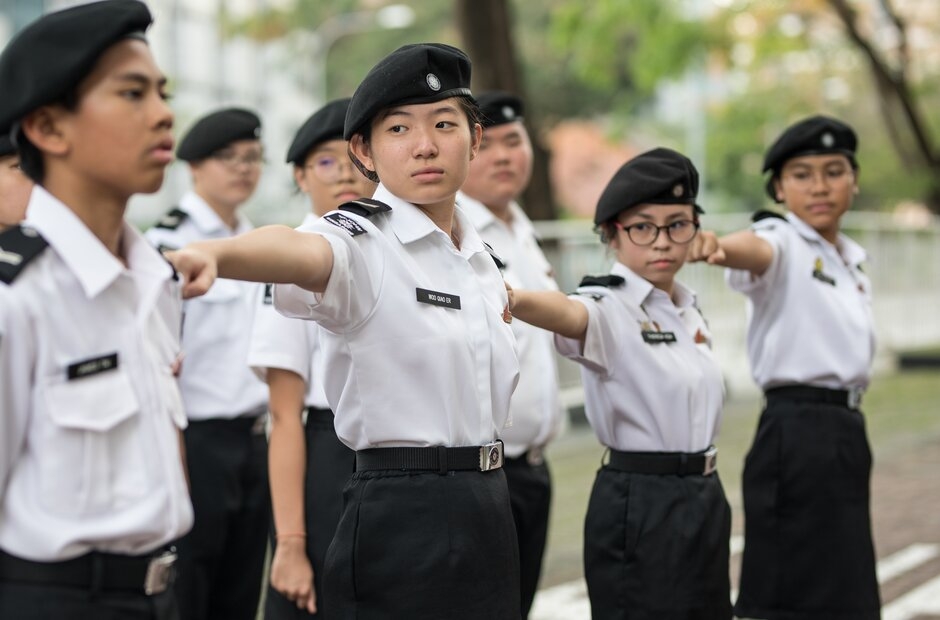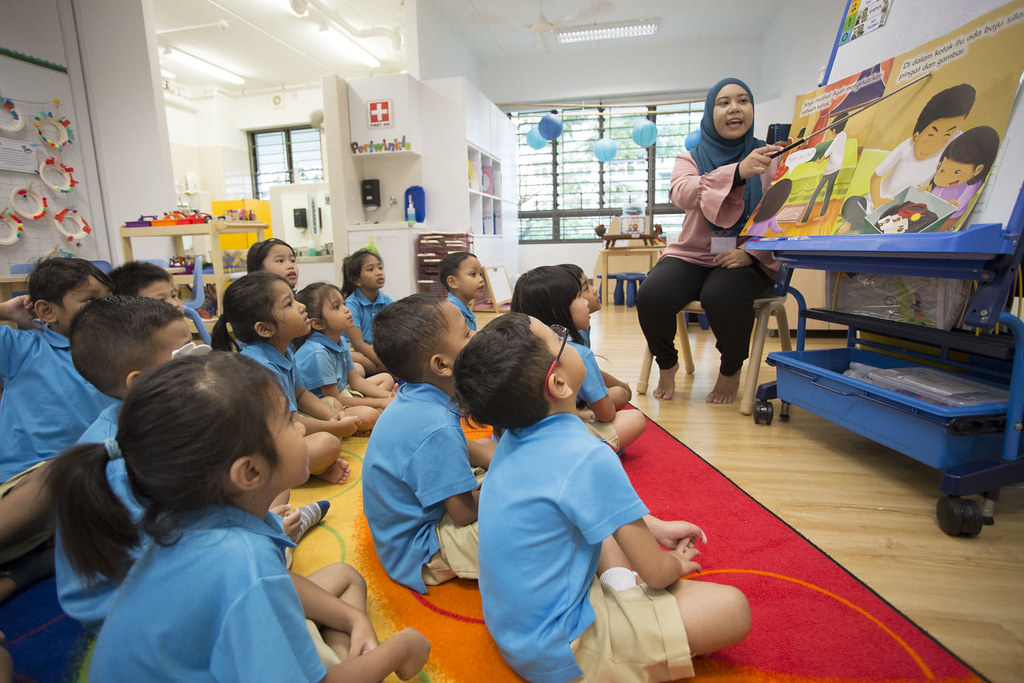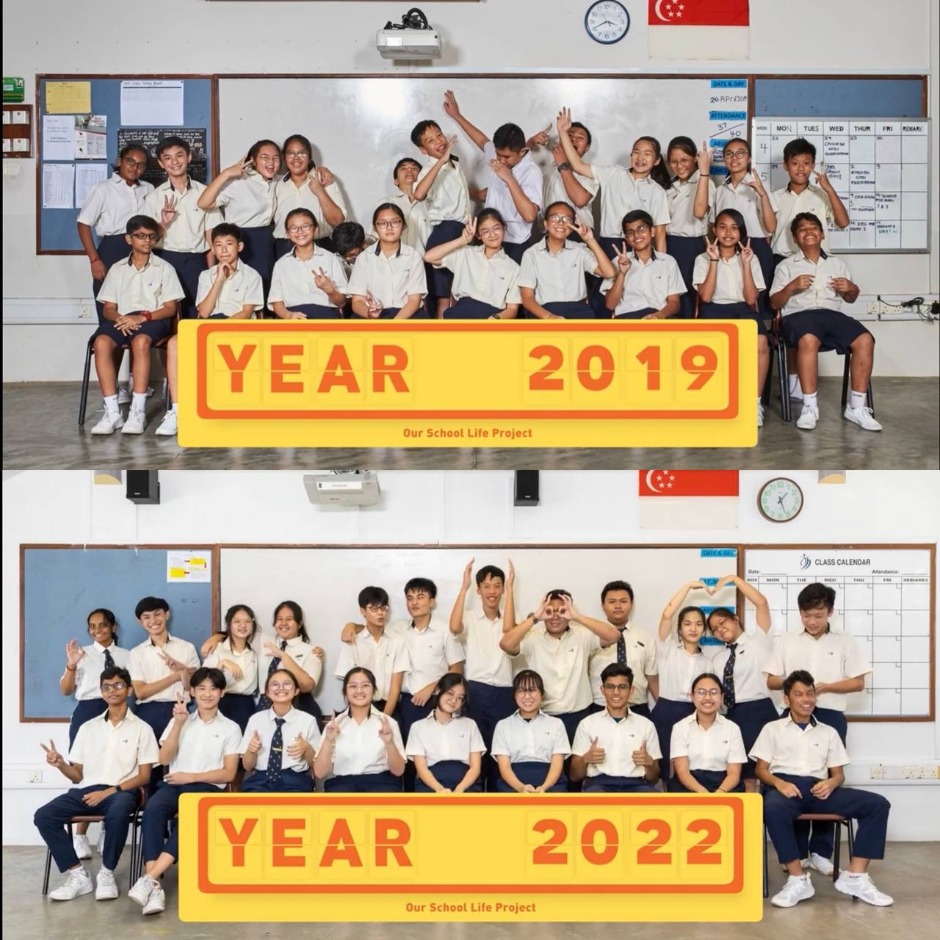Audrey Oh Chu Mei, CHIJ (Kellock), Outstanding Youth in Education Award 2021 Finalist
As a student, I struggled with Math. It was simply a subject I could not make sense of back then. I was taught to commit facts to memory, and often could not apply my knowledge to the Math problems at hand. Since Math is a subject that builds on the mastery of concepts as we progress through school, I fell behind.
For students to thrive, school must be a happy place that helps students to make sense of their world. I apply this principle to my lessons, whether I am teaching English, Mathematics or Social Studies. Today, in my lower primary Math class, for example, rather than making them memorise the multiplication chart, I use manipulatives such as wooden cubes to illustrate multiplication. To show what “4 x 3” looks like, I would set up four identical groups of three objects in each group.
Students would first figure out that they could count all the cubes to find the total number. Then we would take it a step further, and students would realise that they can also count the cubes in repeated additions of three – 3, 6, 9, 12 – to get the final answer. Students could see why “4 x 3 equals 12” and not simply because the chart told them so. When students understand what they learn, and see a purpose to it, the joy of learning is kept alive.
I take a similar approach in my language classes or values-based lessons at CHIJ Kellock. I often use animated story books to illustrate abstract concepts like empathy or resilience. It helps my students project themselves onto the characters in the plot or recognise situations similar to their own experience. For example, they might read about a narwhal learning to ask for help, or about the friendship between a seahorse and jellyfish. They can see how different situations are played out, observe how the characters interact, and later discuss their observations with the rest of the class.
My students also record their learning points in personal journals, whether through writing or drawing. This habit helps them to process and reflect on what they have learnt. I strive to make learning fun by making the learning experience more memorable. In this way, students learn better and can apply their knowledge more effectively.
Helping students find their voice
During our school’s Primary 1 orientation activities last year, I observed how a student, Jane*, was shying away from participating and interacting with her classmates. When I reached out to her, I discovered she had difficulty expressing herself. Most students would be able to write their names on the first day of school, but Jane could not.
I started checking in with her daily, encouraging her to tell me about her favourite cartoon character or colour, about how her weekend went, and about her family. Jane would usually respond with monosyllables or not at all. A breakthrough came when I asked her to draw her responses instead.
To offer all-round support, her other subject teachers and I formed a ‘family’ to look out for Jane at school, so she would feel cared for. Our efforts came to a halt during the Circuit Breaker period last year. While we kept in touch during the Full Home-Based Learning period, the stay-home school holidays turned out to be challenging for her to sustain her progress.
So I created a holiday file filled with a range of basic literacy and numeracy games. These activities included tracing numbers and letters, to help build her motor skills and penmanship, as well as word search puzzles and colouring worksheets to make it enjoyable for her. The file also served as a way for me to monitor her progress.
Jane is in Primary 2 this year and appears happy and sociable. She initiates conversations with confidence and has shown good progress in reading – she even helps her classmates with it!
Her example reflects my belief that when a child feels happy, well-supported and understood, the rest will fall into place. I aim to bring the same consistency and warmth to all my students, and to provide a safe, caring and positive learning environment with achievable goals, an environment where the students are free to speak up and their needs are the primary focus.
Being of service to others
In my classes, I often ask my students questions like, “How can you use your talents and gifts to help others?”, “How can you reach out to people in need?” and “How can you help them?”
‘Peer support’ is an important concept to impart. My students learn to offer support kindly. They may ask their friends politely if they need help, and if the difficulty is with reading, for example, they could find out which words their friends struggle with and demonstrate how to pronounce them. It is important for students to learn how to motivate their friends. I also model to them how to offer words of care and encouragement such as “You can do it!”, “Do you need help?”, and “Are you OK?”
Every child needs to know that they are valued for who they are.
I practise the concept of ‘mindful praising’ in the classroom as I believe that children should be praised with specific intentions. I would use phrases like “I like what you’ve done with this piece of work” or “I can see that you have put in effort”, focusing on the child’s effort and strengths. I refrain from using words like ‘smart’ or ‘clever’, which can be vague and do not highlight the efforts of the child. Mindful praising also helps to strengthen the bond and connection between the adult (teacher/parent) and the child, which will in turn enhance the child’s self-esteem and self-worth.
Every bit of learning must result in positive change – whether in terms of knowledge, values, outlook or attitude. I see myself as a cheerleader who cheers on my students in their life’s journey. I hope that every child who walks out of my classroom will be anchored in their values, while remaining resilient in the face of adversity and learn how to be of service to others. I also hope that they will look back fondly on their time in primary school and gain inspiration from their childhood memories.
*Name has been changed to protect the identity of the student.






